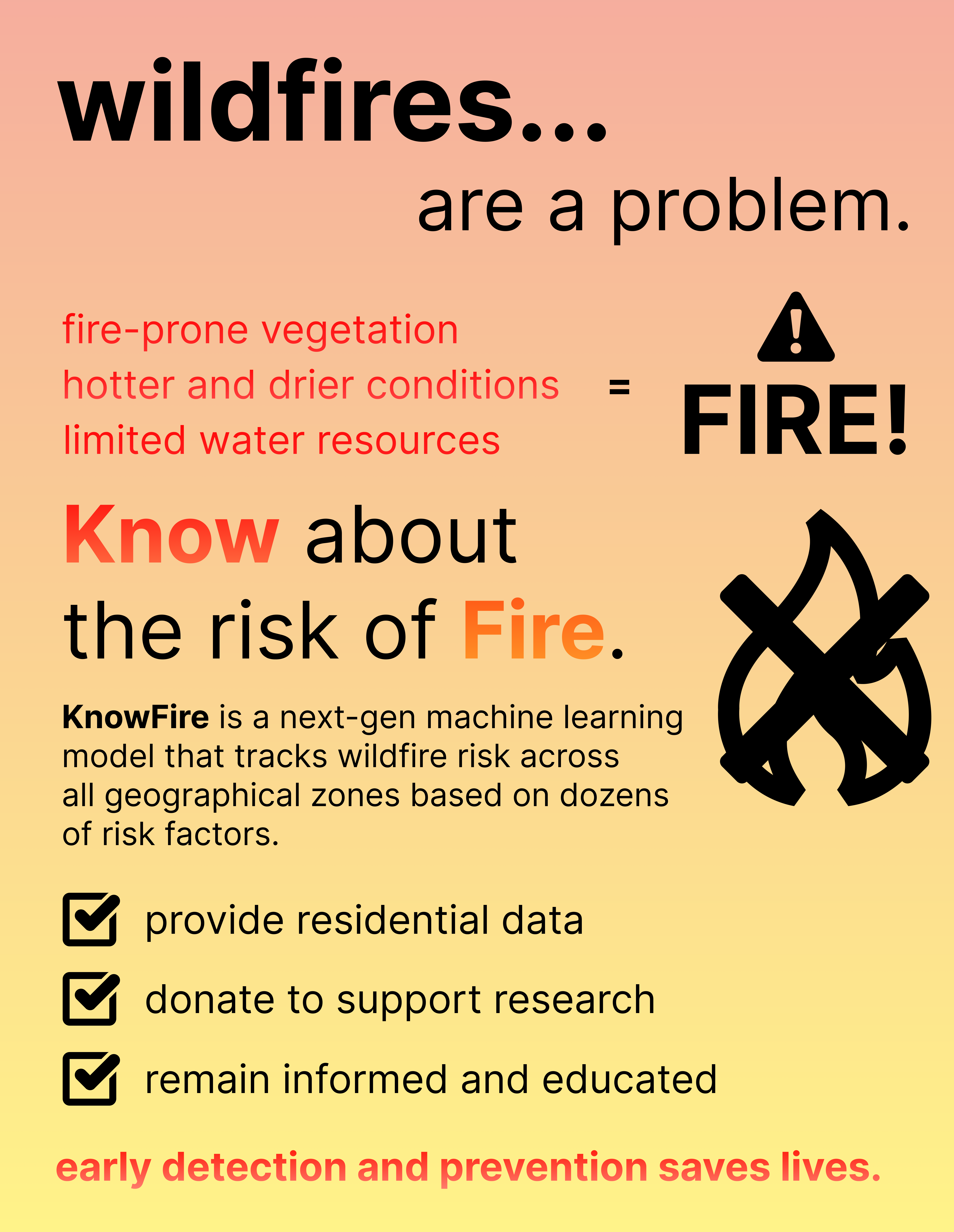The climate in Boulder, CO is semi-arid, with low humidity and occasional strong winds, which can contribute to wildfire risks. Unfortunately, the recently changing climate has led to more frequent and severe drought conditions, which have extended the wildfire season and increased the threat of wildfires. Especially vulnerable are the mountainous regions surrounding Boulder, residential areas bordering wildlands, and local infrastructure such as power lines and roads. The problem with wildfires is that they can spread rapidly, devastating entire neighborhoods and damaging critical buildings. This makes them significantly more dangerous than other slower-moving climate events—the Marshall Fire in 2021 burned 6,000 acres and destroyed 1,000 buildings in just four days.
To allow for early detection and prevention, we can build a machine learning algorithm, KnowFire, to track and monitor wildfire risk depending on factors like local climate data, topography, vegetation types, and historical wildfire patterns. We can supplement this model with real-time data from residents, providing information on changes in local flora and fauna. By collaborating with researchers and the community, we can stay informed about any changes in the environment, allowing us to remain prepared and moving us closer to a safer future.
Contact us
Thank you for your interest in contacting Future Engineers. We look forward to connecting with you!
General Inquiries
support@futureengineers.orgSponsorship Inquiries
sponsor@futureengineers.org
